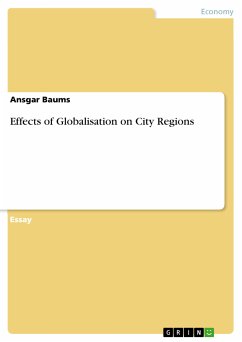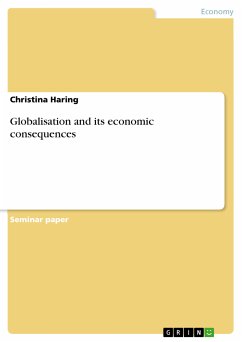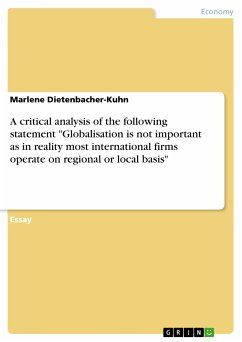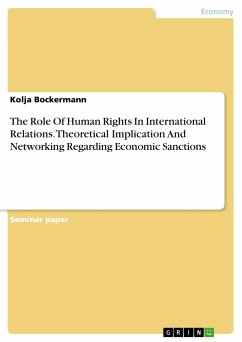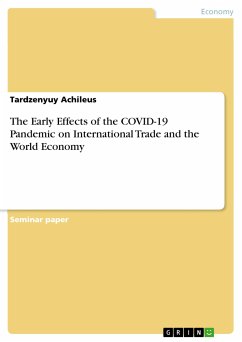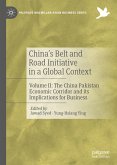Essay from the year 2005 in the subject Economics - International Economic Relations, grade: 20, University of St Andrews (Department of Economics), language: English, abstract: The debate about the effects of globalisation on cities is controversial. On the one hand, scientists and journalists predicted "the end of the city" due to technological change, especially in the area of telecommunications - implying that an increased number of home-workers and the possibilities of video-conferences would make calm suburbs or rural areas more attractive in comparison to a grid-locked and expensive downtown area.1 Yet, whenever the abstract idea of globalisation is illustrated in newspapers or TV, it is not a suburb or the green hills of Fife that are shown. Rather, symbols of globalisation like Manhattan or Tokyo look more like Ridley Scott's "Nighttown" in Bladerunner. In contrast to the prediction of declining cities, globalisation seems to boost the growth of cities in a way that many scientists - influenced by the ideas of Alfred Marshall and Joseph Schumpeter started to write about "global cities", "world-cities" or "global city-regions". Leamer/Storper called global cities the "big winners" of the Internet Age.2 But what are exactly the effects of globalisation on the functions and economy of cities? In order to examine these effects, it is useful to address two questions: (1) why do firms choose cities as a location in general? (section 2.1); and (2) how does globalisation affect this reasoning? (section 2.2). Section 3 summarises the results.
Dieser Download kann aus rechtlichen Gründen nur mit Rechnungsadresse in A, B, BG, CY, CZ, D, DK, EW, E, FIN, F, GR, HR, H, IRL, I, LT, L, LR, M, NL, PL, P, R, S, SLO, SK ausgeliefert werden.

